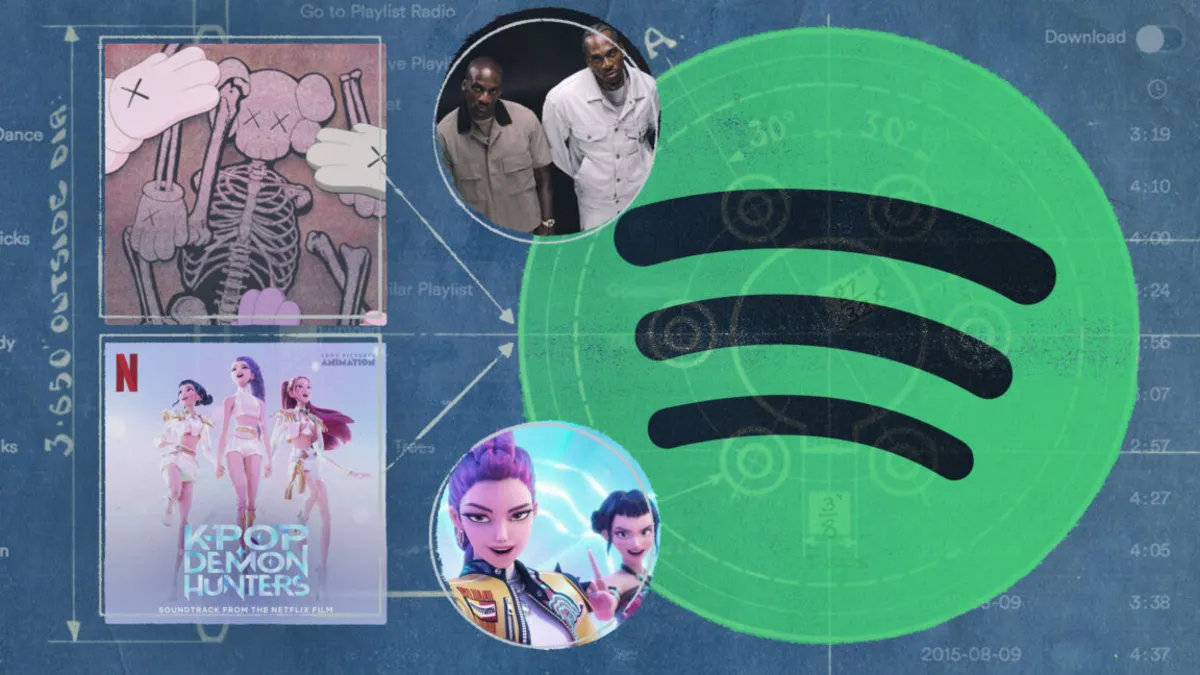
For millions of Spotify users, the Wrapped feature has become an annual highlight, offering a detailed analysis of their listening habits at the end of each year. Since its inception in 2015, Wrapped has captivated audiences, as highlighted by NPR's exploration of its psychological appeal. Cosmopolitan even dubbed the sharing of Wrapped screenshots showcasing top artists and songs as the ultimate status symbol for countless music enthusiasts.
As the Wrapped feature celebrates nearly a decade of existence, a growing number of users are eager for more creative streaming insights. These users are increasingly turning to artificial intelligence (AI) for a deeper analysis of their listening data. They envision a future where their music history is comprehensively recapped, going beyond just top songs and artists. Such advancements could allow users to uncover emotional patterns in their music choices, perhaps offering insights into how their tastes correlate with their moods over time.
Imagine the potential of using AI to analyze your entire listening history. This could help users understand how their music preferences impact their emotional well-being, enabling them to adjust their listening habits to better cope with stress or significant life changes. For those particularly invested in their music data, AI could even facilitate comparisons of listening habits among friends, providing endless entertainment and unique insights into shared musical tastes.
In response to these evolving needs, over 18,000 Spotify users have joined Unwrapped, a collective launched in February that enables them to pool and monetize their data. Through the decentralized platform Vana, these users vote collectively to sell their datasets to developers creating innovative AI tools to analyze streaming data in ways that Spotify currently does not offer. In June, the collective achieved its first sale, with an overwhelming 99.5% of members voting in favor. Vana co-founder Anna Kazlauskas revealed that they sold a portion of users' artist preferences for $55,000 to Solo AI.
Unsurprisingly, Spotify has expressed dissatisfaction with Unwrapped, citing concerns over potential trademark infringement and violations of its developer policy. A Spotify spokesperson confirmed that the company has communicated its concerns regarding Unwrapped's activities, emphasizing that Spotify values user privacy rights, including data portability. While Spotify asserts that users can access their data, it warns against collective data sales, claiming that Unwrapped is in violation of its terms.
Despite Spotify's claims, the Unwrapped team argues that they have not received any official communication from the streaming giant. They are committed to defending users' rights to access and control their own data. Unwrapped developers maintain that their platform does not distribute Spotify’s content or interfere with its business model, but instead provides a community-oriented infrastructure for users to exercise their data rights.
Jacob Hoffman-Andrews, a senior staff technologist at the Electronic Frontier Foundation, emphasized the importance of users maintaining control over their data. He argues that while data should not be commodified, users must have the ability to export and utilize their own information. The crux of the matter lies in users' rights; the Unwrapped team insists that any attempt by Spotify to restrict data sales would undermine user autonomy and contradict privacy laws.
Despite its promise, Unwrapped faces challenges in attracting new users. Kazlauskas claims that Spotify has made it increasingly difficult for users to transfer their data, limiting the platform's growth. Currently, the collective can only accommodate around 300 new users each day due to these hurdles. However, Unwrapped is working on updates to enhance data portability and encourage more users to join.
Efforts like the Digital Choice Act in Utah, which mandates real-time API access for users to retrieve their data, could simplify the process for platforms like Unwrapped. Kazlauskas believes that without such regulations, the launch and growth of Unwrapped would have been more straightforward. As Vana partners with Flower AI to innovate within the AI industry, Kazlauskas remains dedicated to ensuring that users retain control over their data in an increasingly AI-driven world.
As the landscape of technology evolves, Kazlauskas warns against a future dominated by a single company controlling AI. She advocates for a decentralized approach, where communities can harness the power of technology while maintaining control over their data. The vision is clear: users should collaboratively work to build ethical AI that benefits the community rather than allowing tech giants to dictate terms of engagement.